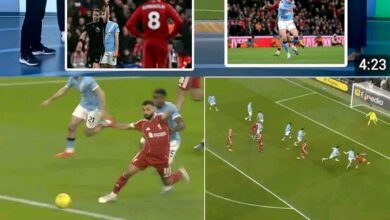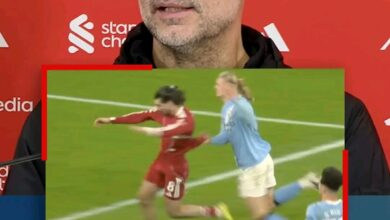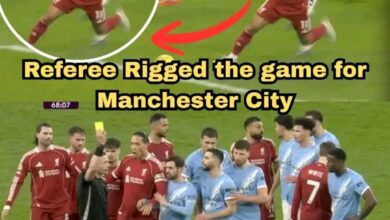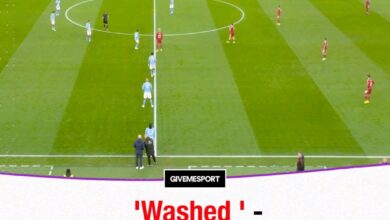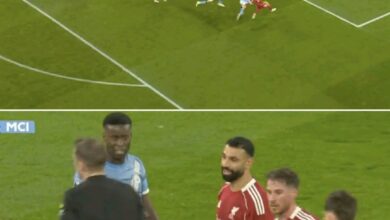Arne slot may be leaving Liverpool just after spending one year with the club
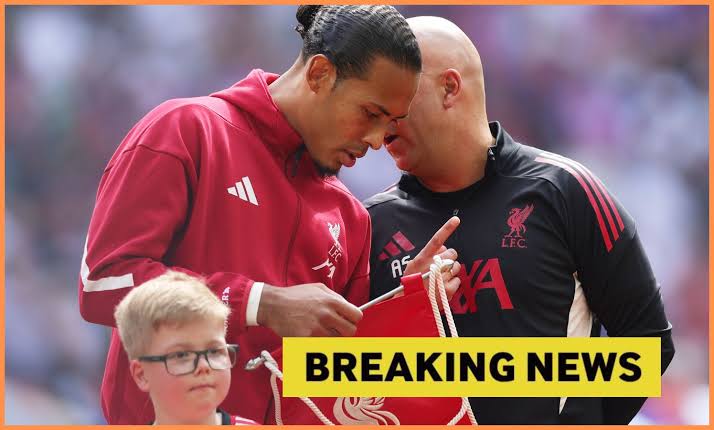
When news first broke that Jurgen Klopp would be stepping down as Liverpool manager, the football world reacted like someone had just told them the sky was falling. This was not just any manager leaving. This was Klopp — the man who brought Liverpool the Premier League after 30 years, the man who gave them the Champions League, the man who gave them that special energy that made Anfield feel like the centre of the football universe. So when the search began for a replacement, every name thrown into the ring came with expectations, doubts, and intense debate.
And in the middle of that whirlwind, a name started to shine brighter — Arne Slot. The Dutchman had made his name at Feyenoord, building a team full of energy, attacking creativity, and tactical intelligence. Reports said Liverpool were impressed with his vision. He was calm in his interviews, confident without being arrogant, and had a clear philosophy: pressing high, controlling the ball, and attacking with purpose.
It didn’t take long before whispers turned into headlines — Arne Slot would be the man to replace Klopp. Slot himself didn’t play coy. He admitted openly that Liverpool had approached him and that he was ready to take the challenge. The deal wasn’t yet signed, but insiders said it could be completed by the weekend. Liverpool fans began Googling his tactics, watching Feyenoord highlights, and imagining how he could take this team into a new era.
But then, something unusual happened. A group of football writers decided to see what would happen if Arne Slot actually took charge of Liverpool — not in real life, but inside the world’s most famous football simulation game, Football Manager 2024. The idea was simple: set the game up exactly as reality suggested — Slot as Liverpool boss, Klopp gone, squad as it was, fixtures as they would be — and see how things unfolded.
The simulation started with Slot officially beating Tottenham’s Ange Postecoglou to the Liverpool job. Fans online reacted to the news inside the game the same way many had in real life: “He’s promising, but this is Liverpool. Can he handle the pressure?”
Slot wasted no time putting his stamp on the team. He lined up his Liverpool in a 4-2-3-1 formation, a shape that gave him control in midfield while keeping the wide players dangerous. One major surprise from the start — he decided to move Trent Alexander-Arnold into midfield. This was a bold decision, one that had been suggested in the real world many times, but not fully committed to. In the simulation, Trent was the deep-lying playmaker, spraying passes and dictating tempo.
Slot also had a new signing at his disposal — Benfica winger **Ricardo Horta**. The deal had apparently been done before Klopp left, but it gave Slot a fresh attacking option from the start. Pre-season was a dream. Liverpool won friendlies with style, scoring goals for fun, and the players looked sharp. Pundits in the simulation’s news feed were already praising Slot for his calm leadership and clear tactical ideas. But football has a way of turning optimism into reality checks
Once the real matches began, the honeymoon period ended quickly. Liverpool lost five of their opening 12 matches. The defeats weren’t just against the giants — although losses to Manchester City, Arsenal, and Tottenham stung — but also against Aston Villa and Real Madrid in the Champions League.
The press conferences inside the simulation turned tense. Slot was asked if he regretted moving Trent into midfield. He defended his decision, saying it was about the long-term vision. But the results meant the pressure was already building. Some fans in the simulated world began to question whether this was a mistake — replacing Klopp with someone who didn’t yet have Premier League experience.
October and November brought a slight recovery. Liverpool picked up wins, played some good football, and closed the gap on the top four. In January, Slot pushed for reinforcements and got one — Maurits Kjaergaard from RB Salzburg for £40.5 million. Tall, technically gifted, and full of energy, Kjaergaard was supposed to be the missing piece in Slot’s midfield puzzle.
But just when it looked like Liverpool’s season might turn around, things fell apart again. The new year brought unexpected defeats. A shock loss to Norwich. Another to Nottingham Forest. The media in the simulation began running “crisis at Liverpool” headlines. In Europe, there was a brief glimmer of hope — Liverpool beat Red Star Belgrade to progress in the Champions League. But in the Premier League, the points kept slipping away.
February arrived like a storm. The fixtures list was brutal: Chelsea and Manchester United back-to-back. Liverpool lost both. The simulated Anfield boardroom had seen enough. And just like that, halfway through his first season, Arne Slot was sacked.
In the simulation, Mohamed Salah’s struggles were a huge talking point. Under Slot, Salah wasn’t his usual ruthless self. The Egyptian King who normally destroyed defences looked… ordinary. His shots lacked venom, his runs were predictable, and his numbers were way below his usual standards. Critics in the simulation’s sports pages said Slot’s tactics weren’t getting the best out of him.
The replacement came quickly — Brighton boss Roberto De Zerbi. In real life, De Zerbi had already been linked with Liverpool before Slot’s appointment, and in the simulated world, he finally got the job.
Of course, this was all just a simulation — a digital what-if scenario played out by Football Manager 24. In the real world, none of this had happened yet. Slot was still at Feyenoord. Klopp was still finishing his Liverpool farewell tour. But it raised a fascinating question: could something like this actually happen?
The simulation highlighted the razor-thin margins of life as a Liverpool manager after Klopp. The expectations are enormous. One bad run of results and the pressure mounts instantly. The fanbase is global, passionate, and demanding. The media attention is relentless. And following a legend like Klopp? That might be the hardest job in football.
It also showed how tactical decisions — like moving Trent Alexander-Arnold into midfield — can define a manager’s perception early on. If it works, you’re a genius. If it doesn’t, you’re accused of overcomplicating things.
Whether Arne Slot’s real Liverpool journey turns out anything like the simulation or not, one thing is certain: the Anfield hot seat is no place for slow starts. You have to win, and you have to win now. In the world of Football Manager, Slot didn’t survive long enough to turn things around. In reality, he will hope his story is very different.
Because in football — both real and simulated — legends are made or broken not by what you promise in your first press conference, but by the results you deliver when the whistle blows.










